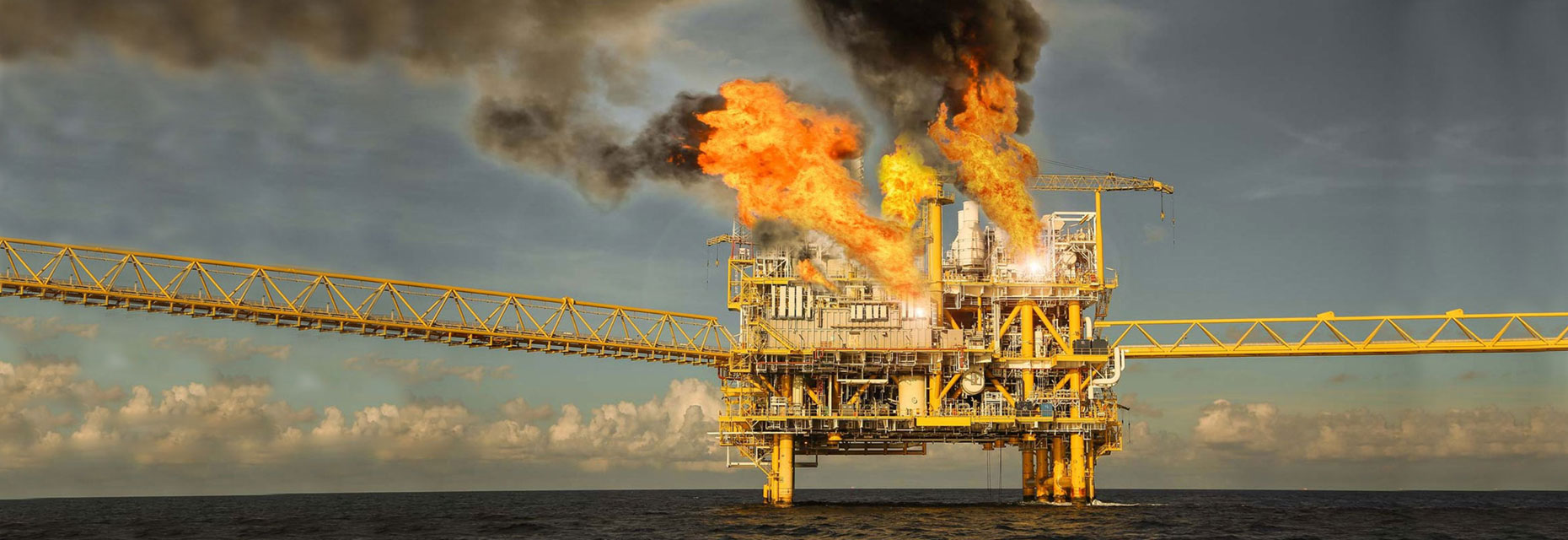Maritime Lawyer in San Diego
“If there is work to be done in the ocean for Longshoremen, Seamen, or Seafarers, Maritime Law will not cease!”
The Mitchell Firm and our partners have been protecting longshoremen, seamen, and seafarers nationwide! Do you work in the Ocean (on or off) a vessel or ship? Have you been injured and have questions regarding your rights? Have you been told by your employer to go back to work because you have run out of time off? If you or someone you love have questions regarding a loss or injury while working out at sea or in a shipyard where the vessel is still afloat, you may be covered under the Maritime Law, and we can help you find out!
What Is Maritime Law?
Maritime Law was created from the court system to determine the rights of a seaman, longshoreman, and seafarers; it is also known as admiralty law. Admiralty Law is a combination of International and U.S. Law that is grouped together to form laws created and governed to protect any being that works within maritime. This includes any private Maritime business and/or other shipping or offenses contracts that occur when the vessel is on open water. Admiralty Law has expanded to lakes and any bodies of water. International rules governing the use of the oceans and seas are known as the Law of the Sea. It is true that in the beginning—way back when—the two meanings meant two different things, but nowadays, the two are interchangeable. Maritime Law is constantly changing based on regions, and independent jurisdiction over the water, and is three steps ahead of the chaos!
At The Mitchell Firm, we pay attention to what matters most, you. The countless hours you have dedicated to your life, and its relationship with the water will always be our top priority and what we choose to keep protecting. We keep it simple by explaining to you how Maritime Law is created to protect you and your loved ones from the dangers in which you have encountered. The Mitchell Firm and our partners know that Maritime Law is not something unknown to most seamen, longshoreman, or seafarers. These laws were created to protect their lives from the dangers of their love for the sea.
The In’s and the Out’s of Maritime Law
Although Maritime Laws are continuously being established and changed around, The Mitchell Firm and our partners know all the in’s and out’s when it comes to:
- Legislation development
- Customs and Regulations
- Anglers and Fishing
- Insurance Claims
- Damage to Property
- Accusations of stowaways on vessels
- Pollution and toxic torts
- Personal Injury
- Shipwreck and Salvage
- Passenger and Container matters and
- Pirates (Yes, there are pirates out there!)
The Mitchell Firm and our partners have your back, and we want you to know that you are not alone! We have made the process of understanding Maritime Law as easy and convenient for you as possible, and our staff is here to help support you through the entire process.
How Did Maritime Law become a “Thing”?
Way back when the nations would conduct their business through trade on open waters and transport their trade throughout the open seas. It became apparent that it was ultimately necessary to expand a law protecting each nation from damages occurring at sea while in other territories. This law, now called Maritime Law, was able to establish that no country could claim arbitrary jurisdiction over the waters. The nations joined forces with a mutual consensus that would soon become vital when disputes slapped them in the face. Over time, different principals on Maritime Law began to develop and grow more refined. Maritime Law has grown internationally, yet it still operates under the laws of each country, therefore making it prevalent to each origin by allowing each state to act upon its own jurisdictional needs and regulations. WHAT this means for you, the longshoreman? That even though you think you are not protected, you are, and we can find out the specifics, so you are not taken advantage of by the “Employer.”
“Clause” The Mitchell Firm CAN
With the help of our partners, The Mitchell Firm can enforce the contract and make provisions that protect you; if you have suffered any form of loss at the hands of the contracting parties involved. We pride ourselves in making sure we create new laws to protect others from further harm. This is called a contractual clause, which reviews the voluntary sacrifice made by the captain running the vessel, whether it be cargo, equipment, or funds to protect further losses or damage in an emergency. These concerns must be distinguished from the principal of the average general cost by all parties who have shared in the responsibility of the venture. Believe it or not, this list is not getting any smaller.
Maritime Law (Admiralty Law) is used interchangeably, and it covers torts, contracts, injuries, and any offenses that take place on the waters in which we navigate. To place jurisdiction in your case, The Mitchell Firm will coordinate with our partners. We will take what is controversial and sophisticated and make it look easy! All authority is on a case by case basis, and three underlying conditions must apply:
- There must be a vessel involved.
- The incident must have happened on navigable waters.
- The worker must have been performing his or her job while the injury occurred.
The owner of a vessel or ship may be responsible for providing compensation to the worker if the vessel is determined to be unseaworthy. The owner has a strict duty to maintain its vessel under General Maritime Law.
Seaman could be owed:
- Wages
- Transportation
- Room and board
- Medical services
The Mitchell Firm and our partners can determine if you are covered under the Maritime Law, which includes coverage under The Jones Act or The Harbor and Longshoremen's Act. Regardless of which law applies to your case, we will find out how we can help provide you with the assistance you need and hold the responsible parties accountable for their negligence.
The Jones Act is a legislation that is recognized Federally, for protecting American Workers at sea. Formally known as the Merchant Marine Act of 1920, this law provides workers that have been in an accident or became sick while working compensation from their employers.
The LHWCA (Longshore and Harbors Workers’ Compensation Act) is a law for employees that are recognized federally. This law protects workers that were disabled while providing job-related duties on navigable waters of the United States. They are protected in joining areas that are normally used to load, unload, repair, or build a vessel. The LHWCA provides these workers with:
- Compensation
- Medical care
- Vocational rehabilitation Services
This federal common law allows for a broader approach to bring upon a claim for a non-seaman and could receive coverage as well. An excellent example of a non-seaman would be a passenger on a cruise ship. Either way, if you are hurt on the water, in the open sea, you could be entitled to file a claim against the vessel you paid to travel on. That is where our team can provide you the answers to your questions regardless of whether you are a seaman or not! We give the “The Mitchell Firm Approach” and take the fight away from you and put it back on the “Employer.” Period.
The Mitchell Firm has an “outside the box” approach to get you the justice you deserve. We think outside the box, so you don’t have to. That means when the “Employer's” try to get in our way to justify why “making money” is more important than “their crew,” The Mitchell Firm and our partners will prove why Maritime Law was created in the first place: To protect the “little guys-(longshoremen)” from their “Employer's.” The Mitchell Firm could care less if production and revenue have to stop the “Employer's” from making their quota; all we care about is how the quality of life has affected the way you can live your life each day. If you talk to any of our clients, they will tell you exactly how we have taken them in and protected them throughout the whole process. A process, in which The Mitchell Firm along with the experts we partner with, remind the “Employer” of the Maritime Laws that were made to protect people like you.
- In case of an accident, it is no longer up to the insurance or employer to determine what an accident will entail.
- The doctor or your employer requires you to go back to work and could deny your injuries as “unable to work”.
- You can be determined “able-bodied” and be forced to work with your injuries.
- The Mitchell Firm and our partners have helped longshoremen fight their “Employer's” and implement new laws that protect the Longshoremen themselves.
- “You CANNOT and WILL NOT sue us if you are injured. Please sign here stating that you understand this.” You may have had a hiring packet where you signed an arbitration agreement. This does not mean that you can not talk to an expert and ask questions. There are many ways that The Mitchell Firm and our partners have dismissed the “fine print” because it violates your rights, and we are here to protect you.
- You have no rights. When you are injured on the job, especially in the open seas, you always have rights! That is what the Maritime Law was created for you.
- You’re replaceable. If your employer has told you this, it is used as a scare tactic to bring you to fear, to keep you quiet. This is where The Mitchell Firm and our partners will use their voice and expertise to take the fear of being fired away. Your employer cannot fire you if you were hurt on the job and are unable to work because of an on the job injury.
- We don’t offer insurance to part-time employees. If you do not have private insurance and your employer tells you they will not cover any accidents because you are at fault, they are lying. Your employer is required to obtain workman’s compensation insurance in case of disasters such as yours.
- “If you are loyal to us, we are loyal to you.” Have you ever heard your employer say this? Did you get hurt on the job, and they made you go right back to work? How loyal is that? Were your injuries made worse because your employer made you go back to work too soon?
Don’t allow yourself to be a victim because you are told otherwise by your employer that they have the upper hand. They may seem big and tough when they are in their office, but when the Employer is in ours---they no longer have the upper hand.
The Mitchell Firm understands that you have many decisions to make to protect you and your quality of life. You might even have a family you provide care and financial support to. We, at The Mitchell Firm, will work with our partners to protect your rights and educate you on how working with you will benefit how we can progress in Maritime Law. We have new challenges to find solutions for, and that is what we are here to do: Take the Solution and bypass the Challenges. Your story will change how Employer's conduct business in the future because we will put the laws in place that continue to protect the working Seaman. That working Seaman, being you.







































